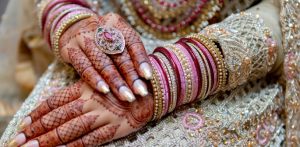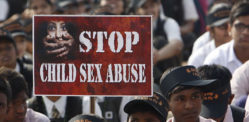"If he [Waseem] killed her in the name of honour, did he see her do anything wrong to anyone?"
On July 15, 2016, social media channels around the world were bombarded with Pakistani media reports. All detailing the shocking news of Qandeel Baloch’s murder at the hands of her older brother, Waseem Azeem.
Baloch was allegedly drugged and strangled while she slept in her parent’s house on the outskirts of Multan.
Her brother publicly admitted to murdering her, claiming that his actions were totally justified in protecting the name and honour of his working-class conservative family.
The aftermath of Qandeel’s death split the community. Some were against the murder saying: “Where is the honour in honour killing?” while others supported the brother’s actions.
The case of Qandeel Baloch is undoubtedly a complex one. Was she an inspiring advocate of female freedom, or was she a promiscuous entertainer who deserved what she got?
DESIblitz explores the delicate conservatism of Pakistani society and the barriers that Qandeel, as a woman, faced in her path to overcome gender vilification.
The Case of Qandeel Baloch
Qandeel (real name Fauzia Azeem), came from a large struggling family in a village in Dera Ghazi Khan. She was a self-made woman. Her earnings from modelling lifted her family from its initial poverty.
She became the primary breadwinner. Paying for her parent’s home, her sister’s wedding dowry, and even a mobile phone business for Waseem to run.
The 26-year-old began her showbiz career with modelling. In 2013, she failed auditions for Pakistan Idol. Viewers warmed to this quirky drama queen, and her audition video went viral.
Amassing thousands of followers on Twitter and Facebook, an internet sensation was born. By late 2015, ‘Qandeel Baloch’ was a name known by many people.
The outspoken Qandeel was not one to shy away from controversial statements. She promised to strip down for Shahid Afridi, if Pakistan beat India in a Twenty20 match, even releasing a short teaser on social media.
Soon after, Qandeel posted selfies with a senior cleric, Mufti Abdul Qawi during the month of Ramadan. They met in a hotel room, where Qandeel reportedly wanted to learn more about her faith. She posed with the Mufti’s cap, while he appeared in the background.
The scandal erupted across media news channels.
While this tells us more about the corrupt state of Pakistan’s authoritative figures, many saw this as a step too far.
But Qandeel demanded to be heard – she wanted to advocate women’s rights, and inspire girls to become self-sufficient. Unsurprisingly, this was overshadowed by her promiscuous nature and suggestive selfies.
With ratings sky-high, Qandeel dominated media coverage, and threw her private family life into the limelight. Reports emerged of a forced marriage at the age of 17, an abusive husband and an estranged child.
Her brother, Waseem, found Qandeel’s fame drew unwanted attention to himself. His friends allegedly taunted him with pictures of his sister on their mobiles, and brandished her a ‘whore’.
Waseem reacted and demanded his sister to quit her hellish ways. She didn’t. So he took matters into his own hands.
A Murder that Divides a Nation
Thrown under the guise of an ‘honour killing’, Waseem initially appeared to get away with murder.
But many questioned what manner of honour can possibly be found in this tragic case.
A post mortem revealed that Qandeel was covered in bruises from where she had been pinned down and suffocated. Her mother, Anwar Bibi, who found her the next day said her lips and tongue were black.
Despite the brutality of the attack, Qandeel’s death has divided a nation.
Many have condemned the actions of the brother, but others justify the inhumane way in which she was killed.
Thrown into light are Pakistan’s shaky laws attached to honour killing. A loophole protects murderers if they are forgiven by the victim’s family. It is such a law that plagues rural society and allows communities to kill their own.
Between 500 and 1,000 cases of honour killings are reported each year; the unreported figure will be far higher.
The death of Qandeel sheds light on the patriarchal conservatism that continues to rule rural areas of Pakistan.
While women across the major urban cities have achieved gender liberation, the fate of these other girls across Pakistan is far different.
Women in rural Pakistan are perceived by their relation to men; as a daughter, sister, wife and mother.
It is through these gender constraints that some Pakistani men exert their control and dominance. A woman’s actions, manners, and behaviour are a direct display of her family’s status.
Society judges men on their women in these rural locales, and the sad fact that is that many women will also share this misogyny and enforce it on their own daughters.
Qandeel was vilified precisely as a woman who refused to conform. She understood early on that she didn’t need a man in order to realise her dreams. She ditched her abusive husband and went solo, a brave move, but in a country like Pakistan something you do not make too much noise about.
Interviews with her mother, Anwar Bibi, highlight how Qandeel supported the entire family, sending them the equivalent of £200-£300 in Pakistani rupees each month.
When Qandeel was unknown, her brothers (she had five), were happy to take advantage of their sister’s handouts.
It was only when she became a public figure and the Mufti scandal, that tensions rose.
The mother strongly believes that these sensationalised reports encouraged commentary from people around the Baloch family:
“The main problem was caused by the media. They created an issue for the whole world. Everyone found out. Relatives, others, people we didn’t know would say things against Qandeel.
“They would say there are pictures of Qandeel, Qandeel is naked, Qandeel is this or that. Her brother would get very angry,” Mrs Bibi said.
Despite her risqué image, Qandeel held a very close relationship to both her mother and father, and regularly visited them.
Following the murder, police found Waseem also drugged his parents with sleeping pills so they would not wake up.
Muhammad Azeem, Qandeel’s father, later said: “She must have cried out. She must have called her mother, she must have called out to her father, and we were sleeping like the dead.”
Pakistan’s Conservative Liberalism
Qandeel Baloch is not the first woman in Pakistan to rock the boat of social conformity with her bold image.
She follows on from a long line of sexually provocative women like Meera, Veena, Mathira and more recently, Veena Malik. Each are ‘bold entertainers’, titillating viewers and audiences across the country.
They live showbiz lives of controversy, entertaining the masses with their suggestive behaviour and overt personas. To a large extent, Pakistan has been happy to accept these women for what they are.
That is to say, to a degree.
So, what was it about Qandeel that caused such a backlash?
Was it her encouragement of women to live life how they chose? Was it her refusal to conform to society’s expectations of her as a Pakistani woman?
Many conspiracists claim Waseem may have been paid to kill off his outspoken sister. 69-year-old Awan says:
“While we can say that many of her actions were not amenable to conservative Pakistani society, they were no comparison to some of the sordid actions of those who judged her.
“The only difference is that they do it in private.”
When asked about her marriage, Qandeel revealed her turbulent past, and her shaky relationship with the media:
“I was 17 years old when my parents forced an uneducated man on me. The abuse I have been through… It happens in places like this, in small villages, in Baloch families.
“I said, ‘No, I don’t want to spend my life this way’. It was my wish since I was a child to become something, to stand on my own two feet, to do something for myself.
“And today the media isn’t giving me any credit for speaking about empowerment of women, girl power.
“They don’t recognise that this girl fought. Today I am capable of taking on the burden of an entire household. But no one gives me credit for that,” Baloch told Dawn.
Qandeel did what very few women in rural Pakistan would have the courage to do – she transformed her life. And with her limited resources, she did it the only way she knew how:
“I’ve fought with everyone. Now I have become so headstrong that I only do what I want. I started working in showbiz. I faced so many difficulties. You know how they try to misuse girls who are new to the industry.”
The ‘Honour’ in Killing
Just days before her death, Qandeel wrote on Facebook:
“I believe I am a modern day feminist. I believe in equality. I need not to choose what type of women should be. I don’t think there is any need to label ourselves just for the sake of society. I am just a women with free thoughts free mindset and I LOVE THE WAY I AM.”
Whatever our personal views may be regarding Qandeel’s uninhibited personality, did she deserve to be killed in her family home?
“If he [Waseem] killed her in the name of honour, did he see her do anything wrong to anyone? What was her crime? I shall not forgive. It is my desire to take revenge,” Qandeel’s father told CNN.
Following Qandeel’s death, Pakistan’s government has promised to pass a legislation to counter ‘honour killings’.
Authorities have already barred Qandeel’s parents from forgiving their son, so that he can be tried for murder. But more must be done to prevent future Qandeel Baloch’s being made an example of for family honour.
Pakistani filmmaker Sharmeen Obaid-Chinoy (A Girl in the River: The Price of Forgiveness) says:
“This mentality — that you can get away with murder in the name of honour — it has to be done away with. I am hopeful that this law will pass but the change in mindset will talk so much longer. I think Qandeel Baloch’s murder is the tipping point.”
Qandeel once said: “Nothing is good in this society. This mardon ki society [patriarchal society] is bad. You probably know this already, think about the problems you face yourself.
“I want to give those girls a positive message who have been forcefully married, who continue to sacrifice. I want to be an example for those people. That’s my aim.”
Qandeel Baloch, a social media star and self-prescribed feminist, advocated the freedom of girls to live and act how they chose.
She regularly crossed the boundaries of cultural propriety in Pakistani society. A society, which outside the progressive city life, requires women to be neither seen nor heard.
With the new laws, it is hoped that Qandeel Baloch’s death will not be in vain. No more women should be killed under the so-called guise of honour, but if that happens, it remains to be seen.

































































